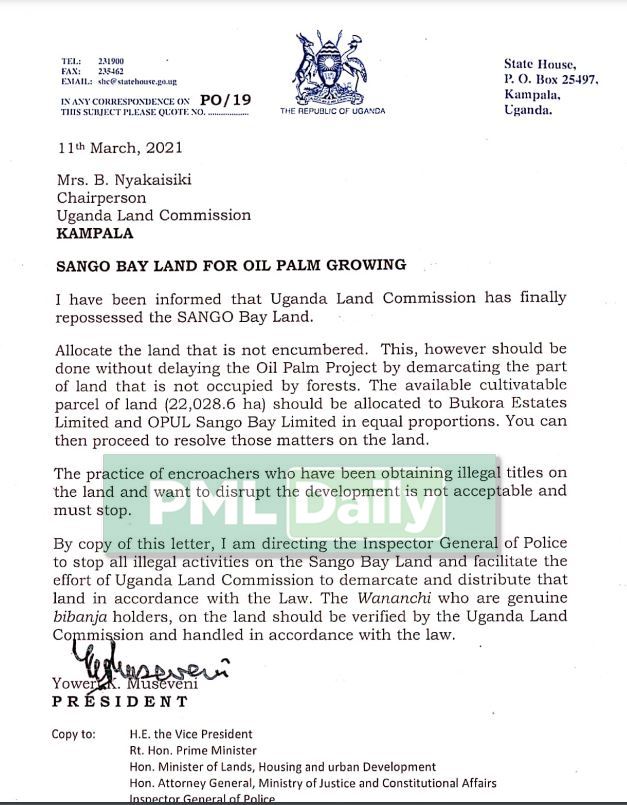 KYOTERA, Uganda — Allegations of land grabbing and forced evictions surrounding a government-backed palm oil project in Sango Bay have intensified, with residents accusing one Ignatius Tumwesiga of leveraging purported State House connections to seize land.
KYOTERA, Uganda — Allegations of land grabbing and forced evictions surrounding a government-backed palm oil project in Sango Bay have intensified, with residents accusing one Ignatius Tumwesiga of leveraging purported State House connections to seize land.
The project initiated through a 2003 agreement between the Ugandan government and BIDCO Uganda Ltd., aimed to develop 40,200 hectares (about 99,336 acres) for palm oil production. However, it has been plagued by disputes, with residents claiming they have been forcibly removed from their land without adequate compensation.
At the heart of the controversy is Tumwesiga, who residents allege is using his claimed ties to the first family to facilitate land acquisition.
They accuse him of working with Resident District Commissioner Apollo Tugume and Commissioner of Police Godfrey Maate Bolingo to enforce evictions, citing a 2021 presidential directive that allocated 22,028.6 hectares to Bukora Estates Limited and Oil Palm Uganda Limited.
“He uses the name of State House to intimidate us,” said Francis Kizza, chairperson of Kyebe Sub-county. “We are powerless against him.”
Residents allege CPL Maate led police officers in destroying homes and farms, claiming they were acting under presidential orders. They also claim prisoners were used to destroy plantations and that some residents were arrested and forced to pay bribes for release.

The State House Land Protection Unit has launched an investigation into the disputes, but residents remain skeptical, citing Tumwesiga’s alleged influence.
“We are beginning to wonder whether the compensation will ever come. How long are we supposed to wait?” asked Joseph Kagame, a local councilor, questioning the government’s commitment to compensating those affected.
Evicted residents say they have not received compensation for their land, now used for palm tree plantations. Sango Bay, approximately 247 square miles, was home to about 10,000 residents who relied on farming and livestock.
State Minister for Lands Sam Mayanja visited the area to inspect the project’s progress. He urged residents to be patient, assuring them compensation would be processed.
Tumwesiga, head of the palm tree planting project, dismissed the claims, stating most affected residents had been compensated and refuting harassment allegations.
Mayanja instructed RDC Tugume to review compensation lists to ensure all eligible beneficiaries are accounted for.
“We will not allow any false claims. Those who deserve compensation will get it, but anyone found lying about their entitlement will face legal consequences,” Mayanja said.

The project aims to cultivate 18,000 acres of palm trees, with a large-scale processing plant planned for the region.
Despite the government’s optimism, the allegations surrounding Tumwesiga’s alleged State House connections and the plight of displaced residents continue to cast a shadow over the project. Until the compensation issue is resolved, tensions are likely to persist.





